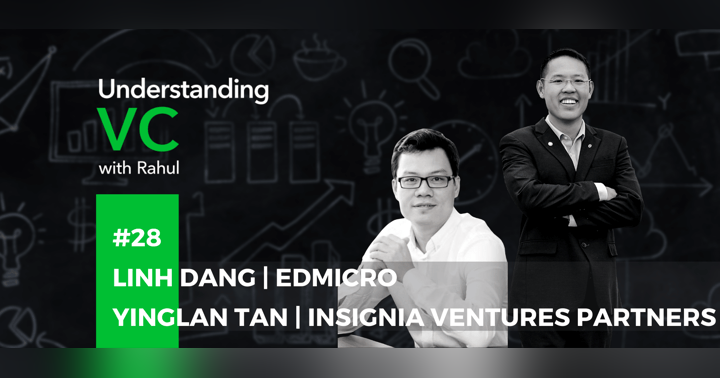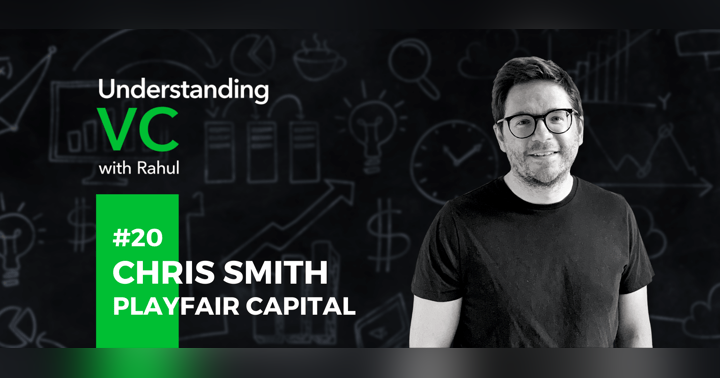Understanding VC: #18 A Conversation with Tu Ngo on her first startup YOLA, her journey towards becoming a VC focused on macro-changes, the perks of working with early-stage startups, and the Touchstone Fellowship Program for founders

In the latest episode of Understanding VC, we got the chance to interview another successful Vietnamese founder and venture capitalist, Tu Ngo, who currently holds the position of founding General Partner at Touchstone Partners, an early-stage Vietnamese VC focused on sectors including healthcare, education, manufacturing, and climate action. Ever since her college days, Tu’s personal quest has been to discover ways in which sustainable macro-changes can be implemented in the society which would actually stand the test of time.
If I even wanted to be a VC, I wanted to be a founder first.
Tu was fortunate enough to secure a scholarship to Stanford University where she studied Public Policy. Although interestingly, she never really worked a job. She did several internships and took classes ranging from business to education policy in an attempt to test out various theses of developing sustainable models. One of her internships with a VC made her realize that becoming a founder is probably the best option as a first step towards her goals.
Unfortunately during that internship, she was unable to lend the founders any help due to a dearth of experience, leading to a provoked curiosity about how entrepreneurs function and what are the tools needed to build a company. Soon after that, she conceived the idea for building YOLA, which remains one of the leading English language education platforms amongst Vietnamese students.
Tu’s founding experience at Yola (Your Online Learning Assistant) was nothing short of a rollercoaster ride. Two of her co-founders were people she had already worked with at VietAbroader, a student-run non-profit organization whose commitment for promoting sustainable development aligned with Tu’s professional ideology. The founding team also bore qualities which made them compatible: the perfect proportion of challenge and respect towards each other to bring out their full potential. This association laid down a foundation of trust for the startup. But there were still many challenges to be overcome.
Yola was started in 2009, a time when the internet had barely taken off in Vietnam, and ecommerce was scarce. People still had apprehensions about online businesses since the marketplace was entirely different from how it stands today. In addition to this, the number of VCs was far too low as compared to 2021, making it far more difficult to raise funding. Perhaps, Yola was conceived a bit too early.
What kept us going for such a long time is the alignment in terms of vision.
Nevertheless, Tu and her team proficiently adapted to the circumstances and made it work. They had originally planned online mode to be the medium of instruction. But due to the aforementioned factors, they ended up holding offline classes which were more to the taste of their customers. As the online space grew, they were able to shift to a hybrid model including both offline and online mediums of instruction.
Tu’s team was aiming to build a space where students can access quality education, from teachers all over the world. Yola, today, isn’t only hybrid in terms of the medium of instruction, it also has a hybrid learning model consisting of synchronous and asynchronous learning. With their belief, “one student at a time”, Yola provides students different learning models to choose from based on their interest levels and prior knowledge.
After laying the first brick of Yola in her goal to bring about sustainable changes and development, and acquiring some entrepreneurial experience, Tu went on to found Touchstone Partners with Khanh Tran. Touchstone is an early-stage Vietnamese VC focused on sectors including healthcare, education, manufacturing, and climate action. Some of their portfolio companies include Autotable, Medigo, and Selex.
Your storytelling, inspiration, and vision would be what bring people to come and work with you.
Tu’s quest as a college student came to fruition in the form of Touchstone, which continues to support up and coming entrepreneurs. She expressed her interest in early stage investing along with an array of intelligent reasons behind it. In Tu’s opinion, the close-knit professional relations that people are able to establish in early stages of a company go far beyond the relations established in a later series of investments. She also thinks that working as an employee in a startup is an extremely rewarding endeavour solely because of the irreplaceable first-hand experience that it provides of interacting and working with founders and investors.
As the conversation steered in this direction, we couldn’t help but ask Tu, what could be the singular quality that founders should look for in investors? Tu’s answer brought to light something intangible which cannot be found in any term sheet, and yet dictates the fate of a startup. According to her, alignment of vision is an essential ingredient for a startup’s success, and this alignment should be shared by all the stakeholders including the founders, team, and the investors. Consequently, integrity and fairness are not to be compromised either.
Towards the end of the conversation, we dug into the details of what Touchstone Partners does, and what are the ways in which they plan to aid entrepreneurs. As to the sectors which Touchstone focuses on, Tu told us that most of them have to do with fundamentally improving the quality of life for the people, including education and healthcare. She also shared with us some insights about the Touchstone Fellowship Programme which the firm has started as a breeding ground for talent where founders can engage in a mutually beneficial exchange of ideas and experiences.
Something that has inspired Tu to undertake such inspirational tasks, and the common thread that is woven through all the stages of Tu’s career is the set of ESG Principles. We asked Tu, what exactly do these principles mean to her, and how does she implement them in her professional life. As most readers might be aware, ESG stands for environmental, social, and governance. ESG is essentially a set of non-financial principles that help investors identify startup plans which fit into the mould of uncompromised sustainability in the long run. They also help investors investigate the potential for growth depending on factors such as climate change and social discord. Tu’s predisposition for sustainable changes is in complete alignment with the idea behind ESG principles, and she looks forward to them becoming the norm in the coming future.



